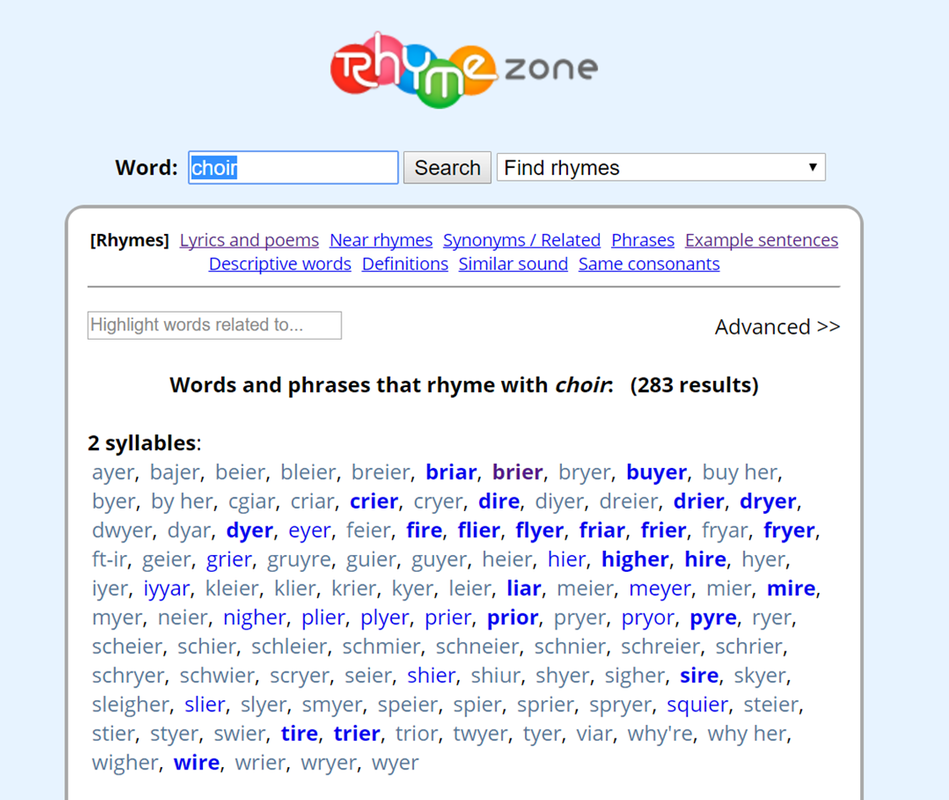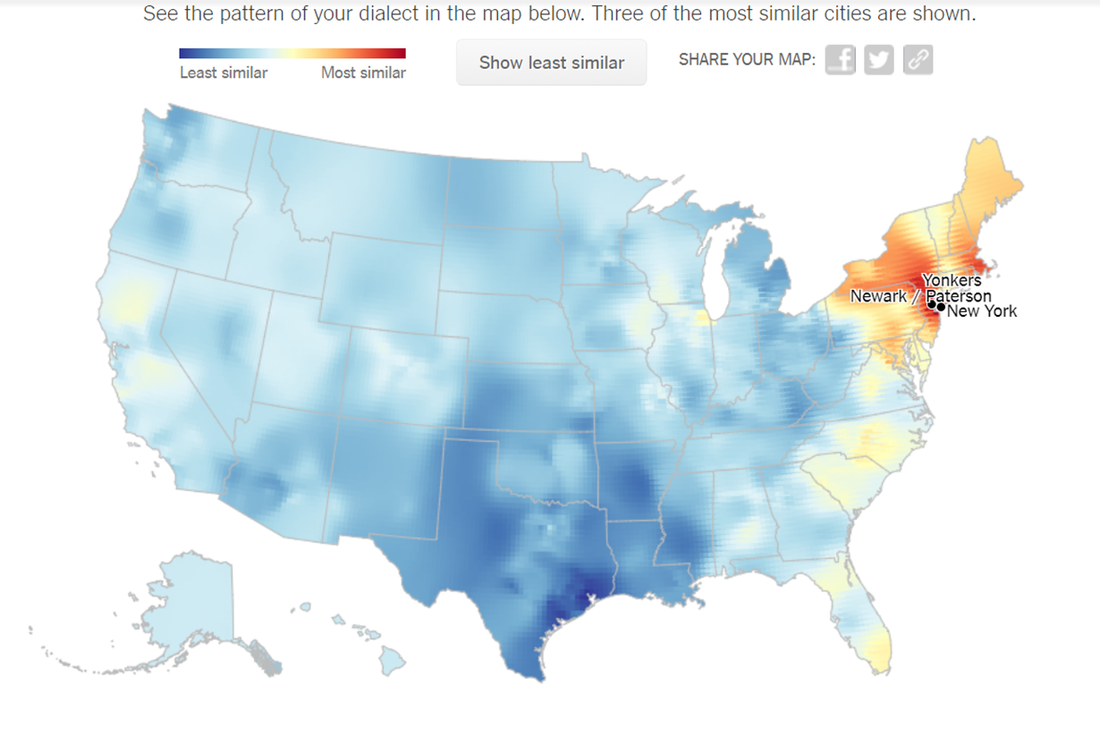|
I often hear this from my clients:
"My kids tell me: Mom (or Dad), you're not pronouncing that word right!" The moms and dads in this case are my clients. Typically they are advanced, non-native speakers of English whose kids were either born in the United States or who came to the country at an early age. As a result, English is these kids' first language or they are learning it when they are young. As any parent can tell you, sometimes your own kids are your biggest critics. However, the problem with your kids' well-meaning feedback is this: what they hear as a "mispronunciation" is usually just your accent. And an accent is not necessarily a mispronunciation. So what's the difference between a mispronunciation and an accent? Here's an example. One of my clients said to me, "I ate soap for dinner last night." I said, "You ate soap for dinner? Are you sure?" He laughed and corrected himself. "No, no. I ate soup for dinner!" As you can see, if you pronounce "soup" as "soap", yes, that's a mispronunciation. You have substituted one English word for another, and your meaning is not clear. On the other hand, if you say, "I ate soup for dinner", and the word "dinner" sounds more like "deener", that's an accent. "Deener" is not quite how a native American English speaker would say "dinner", but I can understand you just fine. So the next time your kids correct you, ask them: "Did you understand me?" If they say "yes", then I suggest you simply smile and say, "That's not a mispronunciation, that's just my beautiful accent!" * The standard American English pronunciation of "dinner" uses the sound /ɪ/ as in "fit" instead of the /i/ as in "feet" in the first syllable. You did it! You finally mastered the pronunciation for a really difficult English word, like wool or choir or the dreaded rural.
Why stop with just one word? If you look up words that rhyme with your newly conquered one, you can grow your pronunciation skills that much faster! For example, rural rhymes with plural and neural. Choir rhymes with buyer, flyer, wire and many more. It's true: sometimes what makes a word difficult to pronounce is specific to its particular combination of sounds, like the two /r/ sounds in rural. When that's the case, it can be helpful to start with an easier rhyming word, like neural, and then work your way up to rural, because at least you've got everything down pat except the initial sound. My favorite rhyming dictionary is Rhymezone. It is very comprehensive. Rhymezone highlights a word's most common rhymes, as well as offers rhymes with multiples syllables and homophones (words that are spelled differently but sound the same, like way and weigh.) You can also look up a word in lyrics, poetry and quotes to get a feel for it in context. Rhymezone is great for writers, too. When I was working as a copywriter, I used the site all the time. Here is a screenshot of Rhymezone's results for choir. And that's just the two-syllable matches! There are many more further down the page. So here's my advice: Want to improve your pronunciation? Make time for rhymes!
For English learners, the tense high front unrounded vowel /i/ is often indistinguishable from the lax high front unrounded vowel /ɪ/. In other words, it's hard to hear the difference between beat /bit/ and bit /bɪt/.
That's because for many English learners the sound /ɪ/ does not exist in their native language. And if you haven't grown up hearing a sound, it's challenging to pronounce it in a foreign language, at least one that you learn after the age of ten or so. Spanish is a good example. It does not contain the vowel sound /ɪ/. So, for many Spanish speakers learning English, fill is pronounced feel, list is pronounced least, and bit is pronounced beat. And that's a problem we need to beat. Michael Jackson to the rescue! Though his hit single, "Beat It", was released way back in 1983, the phonetic lesson it contains is a classic. You'll find the video below. MJ's enunciation of beat /bit/ and it /ɪt/ is very precise throughout the song, allowing you to clearly hear the contrast between the two vowel sounds. At 2:44 into the video, there's a close-up of him singing beat it several times. Close your eyes and keep replaying the video. You should start the hear the difference. Then what the heck, sing along with Michael. It's a super fun way to practice /i/ versus /ɪ/. Use these tips to help your pronunciation: For /i/ (as in beat):
There is a long answer to this question. And a short answer. Let's start with the short one.
Because pronouncing clothes the same way as close is easier. So that's what many Americans speakers of English do. They go shopping for new clothes /klos/. The longer answer is that the th in clothes is voiced: /ð/. And, according to the standard rule for s endings, that means so is the ending in clothes: /z/. Now, I ask you. Who has the time or energy to pronounce a tricky consonant cluster like /ðz/? Sure, you may hear some over-achievers tackle it, but for most of us, we are perfectly happy to lose the /ð/. Why trip over a dreadfully difficult consonant cluster if you don't have to? Many times, students have asked me why a word in English is pronounced one way or another, and sometimes it just comes down to the short answer: it's easier. UN. USA. ATM. WTO. FBI. CPU.
What do these all have in common? They are acronyms: a type of abbreviation made up of the initial letters of a phrase. Some acronyms are pronounced as they are read, such as NATO (/neto/), which is short for the North Atlantic Treaty Organization. Some are pronounced letter-by-letter, such as FBI, which is the acronym for the Federal Bureau of Investigation. How do you know which acronyms are pronounced like they are read (NATO) and which ones are letter-by-letter (FBI)? One hint is whether the consonant cluster exists in English. There is no English consonant cluster /fb/, so the only choice is to pronounce FBI by each letter: F - B - I. Don't rely solely on that tip. In theory, USA could be pronounced as it is read. But we all know it's pronounced U - S - A. Here's the good news. Once you know that an acronym has a letter-by-letter pronunciation, there is a simple rule for knowing which letter receives the stress: It is always the last letter. Well ... I should say almost always. This is English we are talking about, where exceptions to the rule are a given. So: Where can you get cash? At an A - T - M Where can you find a diplomat? At the U - N Where is the UN? In the U - S - A Want to practice? Take a look at this acronym list and see if you can determine which ones are pronounced as they are read and which ones are pronounced letter-by-letter. Remember, if you get one wrong, it is ok to LOL at yourself!
For most job-seekers, interviews are no laughing matter. They can make or break your chances of getting hired. If the interview is not conducted in your native language, there is even less to find funny.
The Université Paris-Saclay begs to differ. The university has created a series of comedy skits for English learners entitled "Crazy Grammar". This first in the series takes a humorous look at how a job candidate's foreign accent, in this case French, can overshadow his skills and experience. Take a look and see how mispronunciations can lead to missed opportunities -- and have a good laugh while you're at it! Sometimes my clients will ask me how to pronounce a particular English word and I have no choice but to respond with the dreaded: "It depends."
It depends on the country. Or the region. Or even the city. Take a word like "Aunt", as in "My Aunt Alison is awesome." Seems simple enough, right? It's pronounced like "ant", that pesky little bugger which invades picnics. Not so fast. "Ant" is one way to pronounce "Aunt" and a very popular one at that, at least in the United States. However, in some places "Aunt" rhymes with "want" or "font". In this case, my Aunt Alison is no longer my Ant Alison, she is my Ahnt Alison. That's the pronunciation you'll hear in England, for example, and a few parts of the U.S., including the Northeastern seaboard (think Boston) and parts of the upper Midwest (Minnesota, in particular.) Data lovers: Check out this dialect splatter chart on the pronunciation of "aunt" across the U.S. If you grew up in the U.S. and are a native speaker, take this quick dialect quiz and see if the way you talk matches where you're from. Even though I moved far away from the New York area decades ago and have long lost my accent (well, mostly), my results below prove it: You can take the girl out of New York, but you can't take the New York out of the girl. Her aunt will always be an ant. |
AuthorTips and tidbits about speaking English well from Karen Schiff, founder of Well Said Coaching. Archives
February 2024
Categories
All
|



 RSS Feed
RSS Feed
